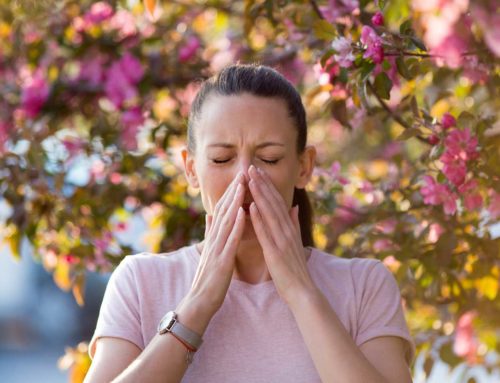When allergy season comes around, you may have more to worry about than just a runny nose and sneezing; allergies can also affect your quality of sleep.
Seasonal allergies, also known as allergic rhinitis, occurs when allergens in the air are breathed in, causing irritation and inflammation in the nasal passages.
Allergens may include dust mites, pollen, mold and pet dander. These particles trigger the release of a chemical in the body that causes nasal congestion, making it harder to sleep. These factors can cause the nasal passages to narrow, making it difficult to breathe properly at night.
A survey from the Asthma and Allergy Foundation of America found that 59% of people with nasal allergies say that they have trouble sleeping because of their allergy symptoms. And 48% say that their nighttime itching and sneezing disturb their bed partner’s sleep as well.
Since sleeping and allergies cannot be avoided, it is important to know that you can try to control them.
Check the pollen count for the day and avoid areas that may trigger your symptoms. If your allergies are not well managed by over the counter medicines and are impacting your quality of life, try visiting your doctor. An allergist can help diagnose the cause of your allergies and provide proper treatment.
Somnas and Allergy Sleep & Lung Care are dedicated to improving and maintaining the health status of our patients by providing compassionate, top-quality care. Your needs, concerns, and lifestyle, and those of your family, will guide our treatment planning. The care you receive with us will be on par with the highest national standards.
For more information about sleep issues, visit: www.somnas.com







Leave A Comment